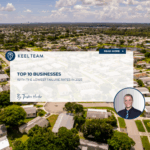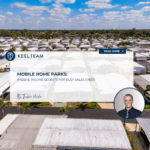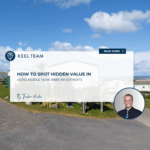What You Should Know About Mobile Home Park Financing
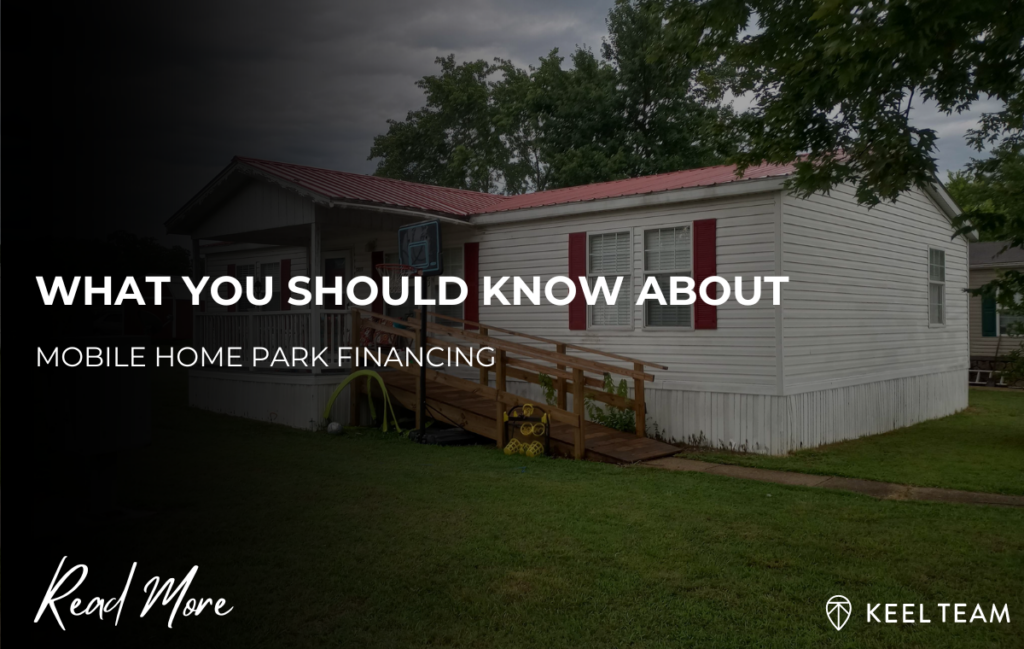
Investing in mobile home parks has become increasingly attractive due to the growing demand for affordable housing. However, the choice of financing is crucial to the success of your investment. Understanding the different financing options available can help you make informed decisions that align with your investment goals. In this post, we’ll explore various financing methods for mobile home park investments, discussing their benefits, potential challenges, and suitability for different investors.
Seller Financing: Flexibility with Potential Trade-offs
One of the most flexible financing options available is seller financing, also known as owner financing or a “seller note.” In this arrangement, the seller provides the financing for the buyer, often making it an ideal choice for those with limited access to traditional loans. The terms of seller financing are typically negotiable, offering more flexibility than conventional loans. This can be particularly advantageous when dealing with sellers who are eager to close the deal quickly or who recognize the benefits of offering financing.
However, seller financing isn’t always an option. Not all sellers are open to this approach, which could limit your opportunities. Additionally, sellers might charge higher interest rates compared to traditional lenders. In some cases, the seller may retain some control over the property until the loan is fully paid off, which might not be ideal for every investor.
Local Banks and Credit Unions: Personalized Service with Higher Rates
Local financial institutions, such as community banks and credit unions, often provide commercial loans tailored for mobile home park acquisitions. These lenders typically focus on their local markets, offering personalized services to borrowers within their geographic area. Local banks are often more accommodating when it comes to properties with a higher percentage of park-owned homes and tend to charge lower loan fees.
On the downside, interest rates for these loans can be relatively high. Banks may favor shorter amortization periods of 15 to 20 years, which could limit your cash-on-cash return expectations. Additionally, the fixed interest rate period may only last 3 to 5 years. The underwriting and approval process can also be lengthy, potentially delaying your investment plans.
At Keel Team, we often acquire mobile home parks using local bank financing with around 75% loan-to-value (LTV). This strategy includes signing recourse on the loan and focusing on value-add projects to enhance the property’s value through infill, rent increases, and utility billing.
National and Regional Banks: Larger Loans with Potential Risks
National and regional banks offer more comprehensive loan terms, ranging from 10 to 30 years, with competitive interest rates and LTV ratios between 65% and 80%. These institutions can provide larger loan amounts, making them suitable for bigger projects. They also typically have experienced lending professionals to guide you through the process.
However, the recourse nature of these loans can vary. Some banks may require a personal guarantee, putting your personal assets at risk in case of default. Non-recourse loans, which limit personal liability, often come with stricter underwriting criteria and higher down payment requirements. Additionally, regulatory compliance for national banks can result in a longer approval process, and their services might feel less personalized compared to local lenders.
Conduit Lending: Ideal for Large Developments
Conduit lending is often used for substantial mobile home park developments. This financing method involves bundling multiple loans into securities that are sold to investors, usually resulting in more competitive interest rates. Conduit loans are typically non-recourse, which limits your personal liability in case of default.
However, this type of lending can be complex and is often less accessible to smaller investors. The intricate structures and requirements involved may necessitate significant experience in the field. Additionally, conduit loans usually cater to larger loan amounts, often over $1-2 million, which might not be suitable for every investor.
Download our FREE eBook and explore the top 20 things Andrew Keel recommends you consider before investing in mobile home parks.
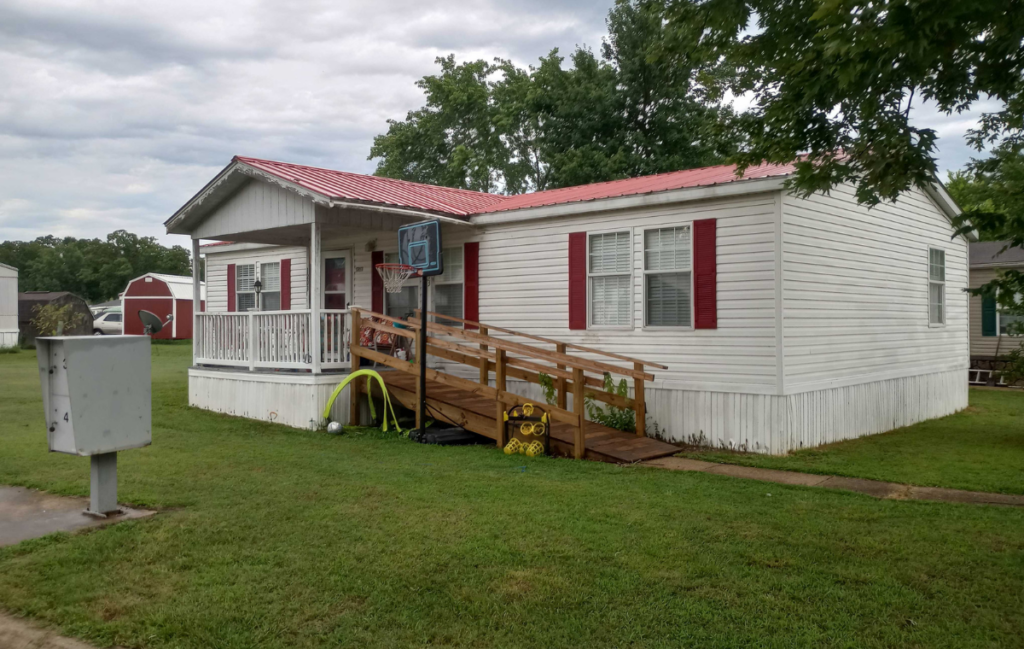
Agency Financing: Favorable Terms with Stringent Criteria
Agency loans, offered by government-sponsored entities like Fannie Mae and Freddie Mac, are designed for multifamily housing projects, including mobile home parks. These loans are known for their favorable terms, such as non-recourse agreements, competitive rates, and flexible fixed-rate periods.
However, agency financing comes with strict eligibility criteria and a lengthy approval process. These loans often target less populated markets and require properties to address deferred maintenance, maintain occupancy above 90%, remove hitches from homes, and keep park-owned homes (POH) below 25%.
At Keel Team, we aim to qualify our mobile home park investments for long-term agency debt through Fannie Mae or Freddie Mac, typically maintaining 60% LTV. This approach allows us to refinance every 10 years and hold the properties for long-term cash flow, ensuring that our investors remain equity shareholders as long as we hold our assets.
HUD Financing: Support for Affordable Housing
The U.S. Department of Housing and Urban Development (HUD) offers loan programs that can be beneficial for mobile home park acquisitions and developments, especially those with a strong affordable housing component. HUD loans typically come with flexible terms and competitive interest rates, featuring long terms up to 40 years and high LTV ratios up to 97%.
However, the application process for HUD loans can be complex and time-consuming, sometimes taking 6 months to a year for approval. The eligibility criteria are also stringent, making it challenging for some investors to qualify for HUD financing.
Loan Brokers: Navigating the Financing Landscape
Loan brokers specialize in connecting borrowers with suitable lenders, offering expert guidance to navigate the complex financing landscape. They typically have access to a wide range of financing options, helping investors find the best deals.
However, using a loan broker comes with additional costs, as they charge fees for their services. It’s also important to be aware that brokers may have relationships with specific lenders, which could influence their recommendations. Choosing a reputable broker is crucial to ensure you receive unbiased advice.
Securing the Down Payment: Creative Strategies
Securing the down payment for mobile home park financing can be achieved through various methods. Options include using personal savings, tapping into home equity, using credit cards, utilizing self-directed IRA funds, seeking assistance from relatives, leveraging the JOBS Act for Regulation D Rule 506(b) & 506(c) syndicated offerings, bringing in partners, or using cash flow from flipping other mobile home parks.
Conclusion: Finding the Right Financing Option
Choosing the right financing option for your mobile home park investment depends on your specific circumstances and investment goals. Seller financing offers flexibility, local banks provide personalized service, national banks cater to larger projects, conduit lending suits significant developments, and agency loans offer favorable terms. Consulting with financial experts or real estate professionals can help you make an informed decision based on your unique needs. Remember, the success of your investment is closely tied to selecting the right financing strategy.
Learn more about mobile home park investing.
Interested in learning more about mobile home park investing? Get in touch with us today to find out more.
Disclaimer:
The information provided is for informational purposes only and is not investment advice or a guarantee of any kind. We do not guarantee profitability. Make investment decisions based on your own research and consult registered financial and legal professionals. We are not registered financial or legal professionals and do not provide personalized investment recommendations.
View The Previous or Next Post
Subscribe Below 👇



